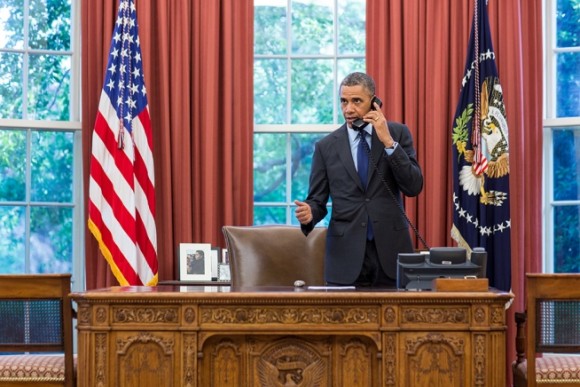
In 1946, the International Military Tribunal at Nuremberg stated the following, in language that was introduced by Judge Robert Jackson, the lead American prosecutor of Axis war criminals:
To initiate a war of aggression, therefore, is not only an international crime; it is the supreme international crime differing only from other war crimes in that it contains within itself the accumulated evil of the whole.
This means that those who launch a war of aggression are responsible for far more than just the initial death and destruction caused by the war. They should be held responsible for all of the “accumulated evil” that follows and that would not have otherwise occurred. This is a very succinct and intuitive ethical precept that is virtually impossible to argue against. But while this injunction can’t seriously be disputed, it can be ignored, and, in fact, often is by powerful states. Unfortunately, Jackson’s own government has never taken his words seriously, and this has never been more evident than in the case of Iraq.
The United States launched a preventive – not preemptive, contrary to what we often read – war against Iraq in March of 2003. This is now considered old news. Most people are aware that the attack resulted in death and misery on a massive scale – millions of refugees, well over 100,000 dead civilians, an exponential increase in terrorism, and so on. Nevertheless, talk about Iraq has all but disappeared in the mainstream, following the U.S.’s much-ballyhooed “withdrawal” from the country in 2011. The general feeling seems to be that Iraq was a tragic episode, one of the worst “blunders” in the annals of American foreign policy, but is now thankfully behind us. No American service member has been killed in Iraq since November of 2011.
However, the war is far from over for the people of Iraq. They are living with the consequences of the war every day, and will be for quite some time. The country is, to this day, terrorized by suicide bombings, which, crucially, did not exist in Iraq prior to the American invasion. In early 2008, Robert Fisk called the acute reality of suicide terrorism in Iraq “perhaps the most ghoulish and frightening legacy of George Bush’s invasion.” Now, more than five years later, the “perhaps” can safely be removed from that sentence. On Tuesday, 16 more Iraqis were pointlessly killed in several bombings and shootings. The previous day was even more deadly, with a “wave” of bombings killing 58 and wounding 187. The death toll from sectarian violence has just passed 500 for this month alone. Iraq is, by any measure, one of the most dangerous countries in the world, far more dangerous than it was under Saddam. The United States and its allies have direct moral culpability for this state of sheer hell in which millions of Iraqis are living.
Shockingly little attention has been paid to the “evil” that is still very much ”accumulating” in Iraq. It’s virtually impossible to imagine that any of the individuals responsible for carrying out this massive war crime will ever be brought to justice. In fact, the person more responsible than any other just had a fancy new library built in his name, and was the subject of lavish praise from his fellow American statesmen at the opening ceremony. It was a day for Bush to “bask in the sun,” according to the New York Times report on the celebration. Naturally, “Iraq” was one word that “never passed Bush’s lips, or those of the other four presidents who spoke.” That would have been such a buzz-kill.
Judge Jackson’s morally eloquent words are destined to be ignored, because powerful actors generally do as they please, and turning themselves in for war crimes is typically not high on the agenda. At the very least, though, as responsible citizens, we can express, in a variety of ways, outrage and disapproval at our political class pushing the unconscionable horrors the U.S. has inflicted on the Iraqi people under the rug. Minimal standards of compassion and solidarity demand that much.
Justin Doolittle writes a political blog called Crimethink. His writing has appeared on Alternet, Common Dreams, and Counterpunch.








 In the U.S., our job for today is clear. It’s Memorial Day and there are a solemn thoughts to have and wreaths to lay. “Ultimate sacrifice” must be repeated again and again. And as MSNBC’s Chris Hayes
In the U.S., our job for today is clear. It’s Memorial Day and there are a solemn thoughts to have and wreaths to lay. “Ultimate sacrifice” must be repeated again and again. And as MSNBC’s Chris Hayes